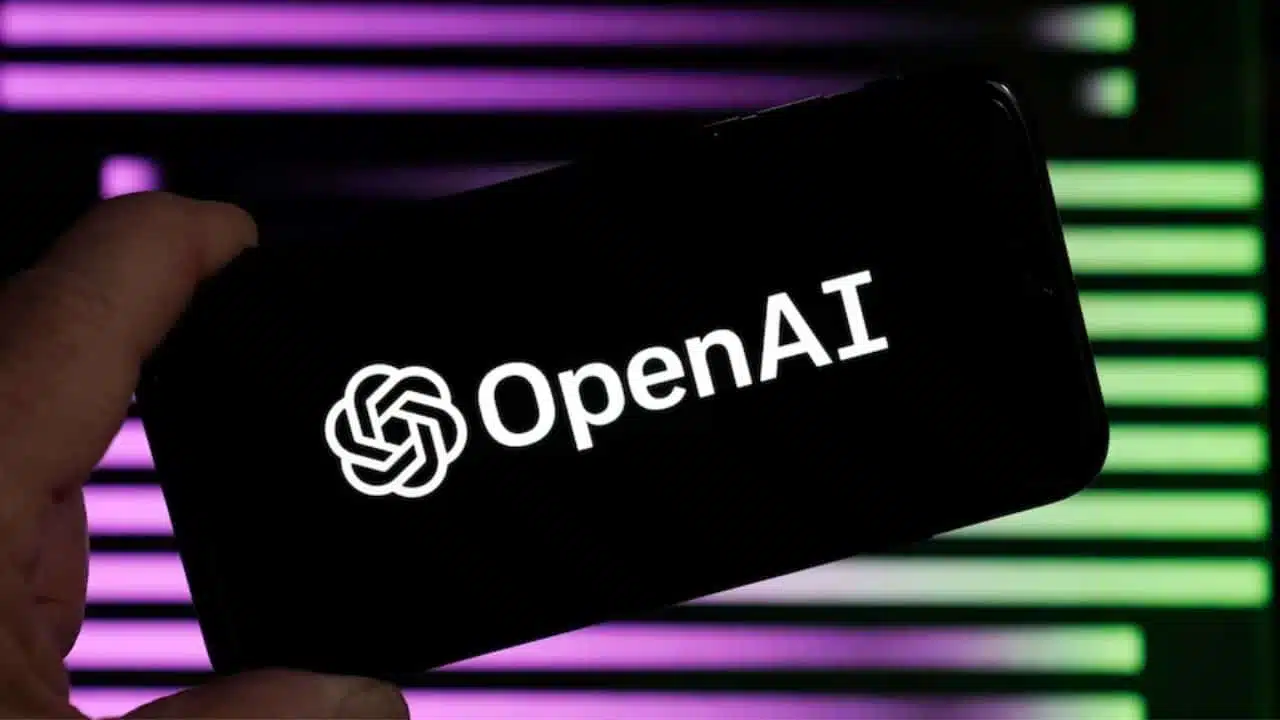OpenAI, one of the leading names in artificial intelligence (AI), is currently in discussions to raise an impressive $6.5 billion from a group of investors. This massive fundraising effort comes as the company’s valuation has soared to an eye-popping $150 billion, according to sources familiar with the situation. The new valuation does not account for the capital being raised, marking a significant leap from the $86 billion valuation OpenAI achieved earlier this year in a tender offer.
The dramatic increase in OpenAI’s valuation cements its position as one of the most valuable start-ups in the world, as it continues to lead the AI revolution with its innovative products like ChatGPT, which have taken the tech industry by storm. OpenAI’s ability to generate human-like text and realistic images from a few prompts has caught the attention of consumers and investors alike, making it a key player in the growing AI landscape.
Talks for $5 Billion in Debt Financing Through a Revolving Credit Facility
In addition to seeking equity investments, OpenAI is also negotiating to secure $5 billion in debt from banks. According to insiders, the debt will take the form of a revolving credit facility—a type of credit line that allows the company to borrow, repay, and borrow again as needed. This financing will give OpenAI the flexibility to meet ongoing operational expenses, such as the need for vast computing power to support its AI models.
One source familiar with the matter noted that the discussions are still in progress, and the terms could potentially change as negotiations continue. OpenAI has declined to make any public comments on the matter at this time, and the sources, who requested anonymity, have indicated that the talks are private.
A revolving credit facility is a common financial tool for companies experiencing rapid growth, as it provides a safety net for operational costs and helps maintain liquidity. OpenAI’s move to secure $5 billion in credit reflects its need for substantial resources to continue expanding its infrastructure and meet the growing demand for AI-driven products. With the exponential growth of its user base, particularly following the release of ChatGPT, the company is looking to ensure that it has the financial flexibility to handle increasing operational demands.
Strategic Investment Led by Thrive Capital
The funding round is expected to be led by Thrive Capital, a well-known venture capital firm that has a history of backing successful tech ventures. While Thrive Capital has declined to comment on the latest valuation of $150 billion, sources close to the deal have confirmed its leading role in the upcoming round of funding. Thrive Capital’s participation further signals the high level of confidence that investors have in OpenAI’s future potential.
According to reports from Bloomberg, Microsoft—OpenAI’s largest and most significant investor—is also expected to participate in the funding round. Microsoft’s relationship with OpenAI has been pivotal in the company’s rise, with the tech giant not only investing billions in the AI start-up but also integrating OpenAI’s technologies into its own products, including the Azure cloud platform. The strategic alliance between the two companies has been mutually beneficial, and Microsoft’s continued support in this latest funding round reflects its commitment to OpenAI’s long-term vision.
In addition to Thrive Capital and Microsoft, two other tech giants, Apple and Nvidia, have reportedly shown interest in investing in OpenAI. Apple, known for its innovation in hardware and software, and Nvidia, a leader in graphics processing technology and AI hardware, could play a significant role in further strengthening OpenAI’s technological capabilities. Their potential participation in this funding round underscores the growing interest in AI from various corners of the tech industry.
Building Relationships With Banks Ahead of a Potential IPO
The decision by OpenAI to seek a revolving credit facility from banks is a strategic one, especially as it gears up for future growth, and possibly, a public offering down the line. This move follows a trend seen among major tech companies like Facebook (now Meta), Alibaba, Uber, and DoorDash, all of which turned to Wall Street for large credit lines before pursuing initial public offerings (IPOs).
By securing a credit line, companies not only gain access to the capital needed to fuel their growth, but they also establish crucial relationships with major financial institutions. These relationships can prove invaluable when the time comes to go public, as banks that have extended large lines of credit often secure lucrative roles as underwriters for the IPO. The revolving credit facility, therefore, serves a dual purpose for OpenAI: it supports day-to-day operations while also setting the stage for potential IPO-related activities in the future.
For banks, the chance to provide credit to a high-growth company like OpenAI presents a unique opportunity to align themselves with one of the most exciting and valuable start-ups in the world. In return for offering favorable loan terms, banks can position themselves as key partners in OpenAI’s journey toward going public. This mutually beneficial relationship between tech companies and financial institutions has been a hallmark of many successful IPOs in the past.
OpenAI’s Meteoric Rise in the AI Industry
Since its founding in 2015, OpenAI has been at the forefront of the AI revolution. The company, which started as a non-profit research lab, has transformed into a commercial powerhouse, thanks in large part to its breakthrough products. The release of ChatGPT in 2022 marked a turning point, not just for OpenAI, but for the entire technology sector. ChatGPT’s ability to generate human-like conversations from minimal input sparked a wave of interest in generative AI, positioning OpenAI as a leader in this emerging field.
Beyond ChatGPT, OpenAI’s suite of products includes DALL·E, an AI tool that can create realistic images from textual descriptions, and GPT models, which are capable of performing a wide range of tasks, from language translation to coding assistance. The company’s innovations have captured the imagination of businesses and consumers alike, fueling a surge in demand for AI-powered solutions.
OpenAI’s journey has not been without its challenges. Late last year, the company made headlines when it briefly ousted its CEO, Sam Altman, before reinstating him. Despite the temporary leadership turmoil, OpenAI has continued to grow, with only a few members of the original founding team still involved. The company has also restructured its board of directors and added new executives to its leadership ranks as it prepares for the next phase of its evolution.
Funding to Support Computing Power and Operational Costs
As OpenAI scales its operations, one of the most pressing challenges it faces is the need for massive amounts of computing power. Running large language models like GPT-4 requires substantial resources, and the company’s infrastructure must keep pace with the increasing demand for its products. In a recent memo to employees, OpenAI’s chief financial officer, Sarah Friar, emphasized that the new funding will be crucial in meeting these operational needs.
According to Bloomberg, Friar explained that the capital raised will go toward supporting the company’s computing power requirements, as well as other operational expenses. OpenAI’s need for advanced hardware and cloud services is likely to grow as it continues to develop more sophisticated AI models and expand its user base. The company is also planning a tender offer later this year, which will allow employees to sell some of their shares. This move is a common strategy among high-growth start-ups, offering early employees the opportunity to cash in on their equity while still keeping the company private.
OpenAI’s Future Prospects
With its sights set on raising $6.5 billion in new funding and securing $5 billion in debt, OpenAI is positioning itself for continued growth and expansion in the AI space. The company’s ability to attract high-profile investors like Microsoft, Apple, and Nvidia underscores its potential to remain at the cutting edge of AI technology.
As OpenAI continues to innovate and expand its product offerings, its next steps—particularly the possibility of an IPO—will be closely watched by the tech industry and investors. The company’s rapid rise has already had a profound impact on the AI landscape, and its future developments are likely to shape the direction of the entire industry. With strong financial backing and a robust technological foundation, OpenAI is poised to remain a dominant force in the world of AI for years to come.
A Powerhouse in AI
OpenAI’s ongoing discussions to raise $6.5 billion in funding, along with its plans to secure a $5 billion revolving credit facility, highlight its commitment to remaining at the forefront of the AI industry. With a $150 billion valuation, strong investor interest, and the backing of tech giants like Microsoft, the company is well-positioned to continue its rapid growth. As it moves forward, OpenAI will need to navigate the challenges of scaling its operations, maintaining its technological edge, and potentially preparing for an IPO. All eyes are on OpenAI as it sets the stage for the next chapter in its evolution as a leader in the AI revolution.



































